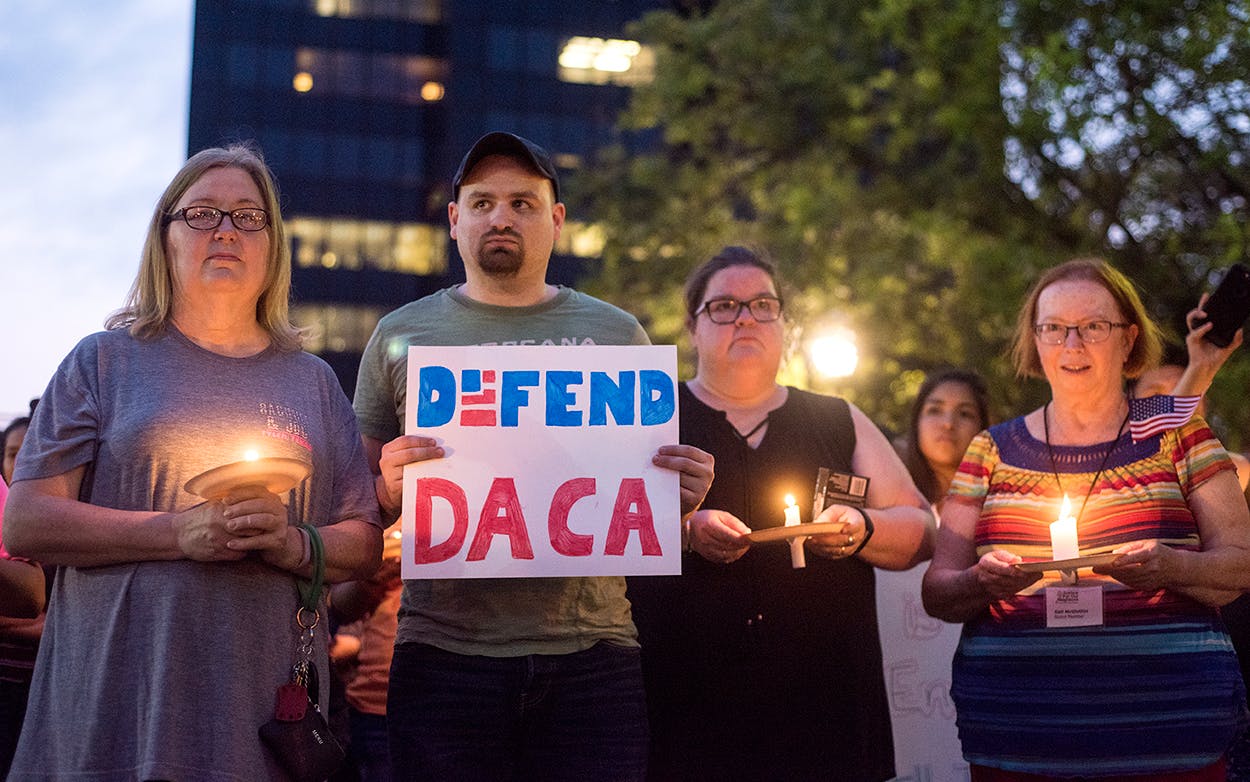President Trump rode a wave of resentment over immigration into the White House, and he has promised to end the Deferred Action for Childhood Arrivals that has prevented the deportation of more than 700,000 young people who grew up in the United States and do not know their native land. U.S. Senator Ted Cruz of Texas also has taken the position that no matter how someone entered the country, if they came here outside the “rule of law,” they will need to leave and apply for permission to immigrate.
But a new Quinnipiac Poll found 55 percent of self-identified Texas Republicans supported allowing these so-called Dreamers to stay in the United States with a path to citizenship. Overall, 71 percent of Texans who responded to the poll backed the idea of allowing these young people to stay in the country. Ninety percent of the Democrats surveyed supported the Dreamers, but the strong support crossed ethnic and racial lines, as well as age groups, the survey showed.
Although a majority of the Republicans surveyed supported the Dreamers, 78 percent of them also favored President Trump’s demands for a border wall. The strongest support for the wall came from East and West Texas, while the greatest level of opposition was in South Texas along the border. People living in the state’s urban areas also tended to oppose the wall. Overall, the wall was opposed 51 percent to 45 percent by Texans.
There was a nearly even split among those polled who believed that Trump was either too aggressive in deporting immigrants in this country illegally versus those who believe Trump was acting appropriately, with 43 percent saying his policy is too aggressive while 41 percent said it was appropriate. Only 11 percent of those responding said Trump should be more aggressive.
And a near identical split existed for those respondents when asked about Trump’s “zero tolerance” policy, in which 100 percent of those caught entering the country illegally would be recommended for prosecution. Forty-seven percent of the respondents supported “zero tolerance,” while 48 percent opposed it. But those sentiments changed drastically when a byproduct of zero tolerance—family separation—became the issue. Seventy-two percent of the respondents said family separation was a bad policy, while 19 percent said it was good policy.
The Quinnipiac University survey of 1,118 Texas voters was taken between July 26 and July 31, and has a margin of error of plus or minus 3.5 percentage points.
- More About:
- Politics & Policy
- Border Wall
- Abortion






